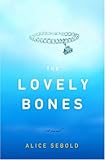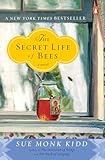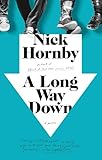 I finished reading “The Lovely Bones” by Alice Sebold last night. I came across this book a number of times throughout the past years, and I thought it would be an interesting read, so it’s been on my to-read list for a while, the only thing that made me get around to reading it faster is that Peter Jackson is currently working on making a movie based on this book, and so I wanted to read the book before the movie was released.
I finished reading “The Lovely Bones” by Alice Sebold last night. I came across this book a number of times throughout the past years, and I thought it would be an interesting read, so it’s been on my to-read list for a while, the only thing that made me get around to reading it faster is that Peter Jackson is currently working on making a movie based on this book, and so I wanted to read the book before the movie was released.
The novel tells the story of Susie, a murdered 14 year old girl who recalls what happened to her from Heaven, and follows how the incident affects her family and those around her, as well as the different connections that are built between them.
I liked the approach to this book and how the narrator is the murdered girl, looking down from heaven and telling the events as she sees them in detail.
Another idea I really liked in this book is the concept of heaven described in it: Heaven isn’t a place that is the same for everyone, it’s a place that is personalized for every person according to their ever-changing dreams, wishes and imaginations.
I can pretty much see how the movie will turn out and I can’t wait to see it and see the different choices Peter Jackson will make while bringing it to film.
There are places where it feels a bit stretched out and you might start to lose some interest, but it quickly tries to catch up, and it’s a pretty good and interesting read all in all.
If you’re interested in checking it out, you can buy it here.

